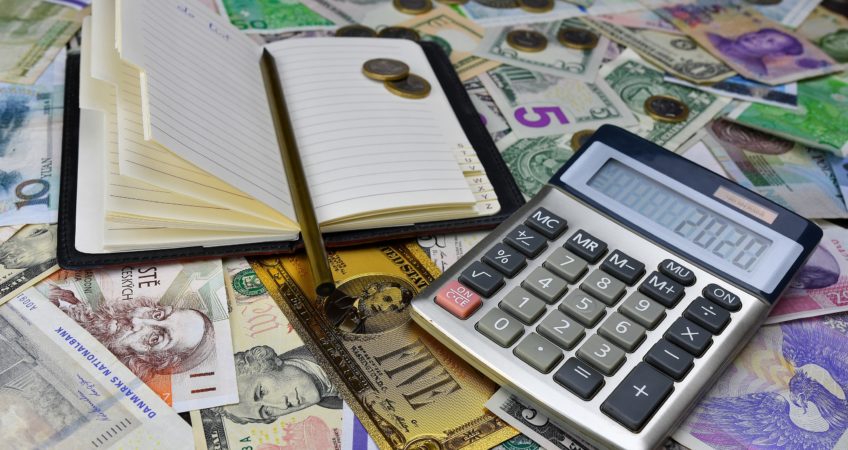Having a budget for your Law Firm can be helpful in many ways. For example, you can be more informed about the costs of your services and be able to determine your profit margin. You can also be more mindful about how much money you spend on marketing and other operating expenses.
Service charges
Creating a budget is a vital part of building a successful law firm. A budget can help you plan your expenses and forecast your revenue. It can help avoid debt and help you maintain a healthy bottom line. It will also help you measure your progress against your goals.
The first step in creating a budget is to understand your business goals. Your goals may include hiring additional staff, acquiring new clients, or expanding your territory. If you plan to expand, budget for between 8 and 15 percent of your gross revenues for marketing and maintenance.
SEO, social media and paid search are the best marketing channels for law firm. A robust cloud-based practice management platform is something you might want to invest in. You will need to hire people who can edit videos and understand social media when investing in digital marketing.
Marketing accounts for between 22% and 38% of the average law firm’s gross revenue. Some firms spend more, but it is always better to spend money on something that returns a return on investment.
For instance, you may want to hire an in-house marketing professional, or you may be ready to hire a marketing firm. Budget is important, whether you’re hiring someone or doing it yourself.
You should also consider your industry benchmarks. These benchmarks will help you calculate the best way to spend your budget. You may need to spend more if your practice is in a highly competitive industry like personal injury. But if your practice is in a less competitive industry, such as family law, you may want to spend less.
Operating expenses – Abogado de Accidente de Auto en Santa Ana
A budget can help you manage your finances. A budget helps you plan expenses, forecast revenue, and manage financial risk. You can improve your financial efficiency and profitability.
Law firms have a lot of different costs, and it’s important to figure out which ones are the most essential to your firm’s goals. While some expenses are consistent across all firms, others can vary from practice-to-practice. Additionally, some costs can be more expensive than others. For example, equipment costs can be very expensive, especially for smaller firms.
The law firm budget is a tool that helps you calculate your total operating expenses and your profit margin. A profit margin is the percentage of your firm’s expenses that are covered by revenue. Your financial position is based on your profit margin. A budget can help you identify potential pitfalls as well as opportunities for improvement.
A law firm budget can be created for an entire fiscal year or for a specific quarter. Law firms should set goals that are achievable in the current conditions, and update them as goals change throughout the year. Budgeting can help you set revenue goals. You can track your progress towards your goals and see if you are on the right track.
It’s important to include revenue-building tools in your budget when you create one for your law firm. You should also include expenses such as software licenses, technology, and internet access in your budget. Consider whether your firm will be expanding its services and how this will affect your budget.
Law firms must invest in people, technology and marketing. A budget can help you decide how big you need to invest and how much you should spend each revenue-building tool.
Marketing expenses
A marketing budget is an essential part of any law firm’s business plan. While every law firm’s needs are different, there are some key factors that can help you determine how much money you should spend on marketing.

The first thing you’ll want to consider is your target market. If you are in the legal services of bankruptcy, personal injury, family, real estate, or other law areas, you may need to spend more money on marketing. You should also consider your geographic location. Some areas are more competitive then others.
Once you have identified your target market, you will be able to start creating a marketing budget. Budgets for smaller law firms should be between 6-12% of gross revenue. You may need to spend more if you are a larger law firm. You should also factor in the cost of any new tools you might need to use, such as legal CRM software.
Your budget should also include time. A good rule of thumb is to budget four hours per week of marketing. This will allow your business to grow by 15-20% within 12-18 months.
You should also track your marketing spend. This will allow you to concentrate on the most effective methods. You can also use tools that will calculate how many leads each month you generate.
Also, consider the amount your target market is willing and able to spend. This is called customer acquisition cost. Your goal is three times the revenue generated from new clients. You can do this by putting specialized ads on your site, like retargeting ads, or PPC ads.
You can also use social media to get your message out. LinkedIn and Facebook are great places to promote your content.
Gross profit margin
Whether you are starting a new law firm or you have been in business for some time, it is important to know your profit margin. Knowing your margins will give your flexibility and allow you work on your own terms. Knowing your margins will help you retire comfortably.
The profit margin is a key indicator of a company’s financial health. It is a simple calculation which takes into account sales revenue and expenses. It identifies the most profitable revenue streams, and it reveals any problematic expenses.
A gross profit margin is a percentage of the revenue your business generates. The industry you work in determines the percentage. A fast-food restaurant might have a gross margin of 40 percent. A clothing retailer may have a gross profit margin between three and thirteen per cent.
Although knowing your profit margin can be a good idea, it is not always the best strategy. For example, a startup business may need to invest in plant and equipment to gain a foothold in the market. Although they may be able pass on the costs to consumers, their margins may not be sufficient to cover the costs.
If your business has a gross profit margin that is declining, it may be time to consider adjusting your pricing strategy or manufacturing processes. You may also want to sell more products in order to increase your revenue.
A comprehensive budget can help to avoid financial disasters and forecast them. It gives you a clear view of the performance of your company. This information can be used to assess your firm’s financial health, and to improve your staffing.
Calculated realization rate
It can help you track your practice’s profitability by keeping an eye on its calculated realization rate. It can help you see trends and identify areas that may be preventing you from realizing billable time.
You can break down your calculated realization rate into several key performance indicators. It can be used as a measure of how well your company is performing in relation to its goals and budget.
To calculate your calculated realization ratio, you will need to know the difference between the fees you have billed and the fees you have collected. This can be done through two different calculations. First, you can calculate your utilization rate. This is the amount of time your attorneys spent on billing work.
You can also calculate your price. Your price is the hourly rate you agreed to with a client. This calculation includes expenses related to the matter.
To track your overall performance, you can also use your calculated realization rates. If you are having difficulty achieving billable hours, you might need to look at your technology and processes.
Many firms have achieved cash receipts of 85% on their invoices. Your software can calculate profitability by office or practice group.
Many law firms Abogado de Accidente de Auto en Santa Ana have noticed a steady increase of their worked rate in quarter 2. Most firms accept this as the new norm. Realized revenue has increased 30% over this period.
While this may sound like a good thing, your calculated realization rate may not reflect your firm’s true profitability. You may need to work on your client selection or improve your processes to increase your profitability.


















